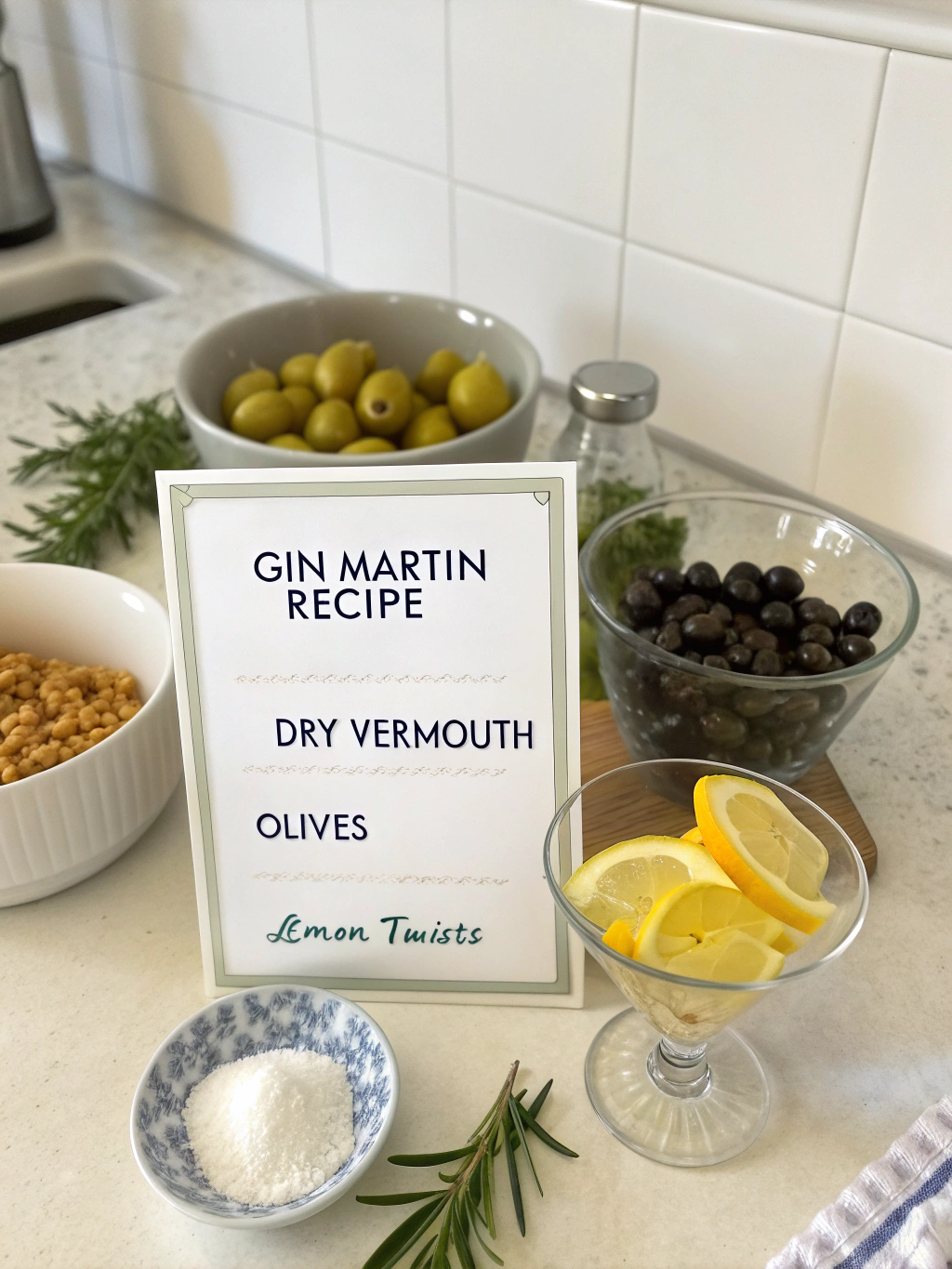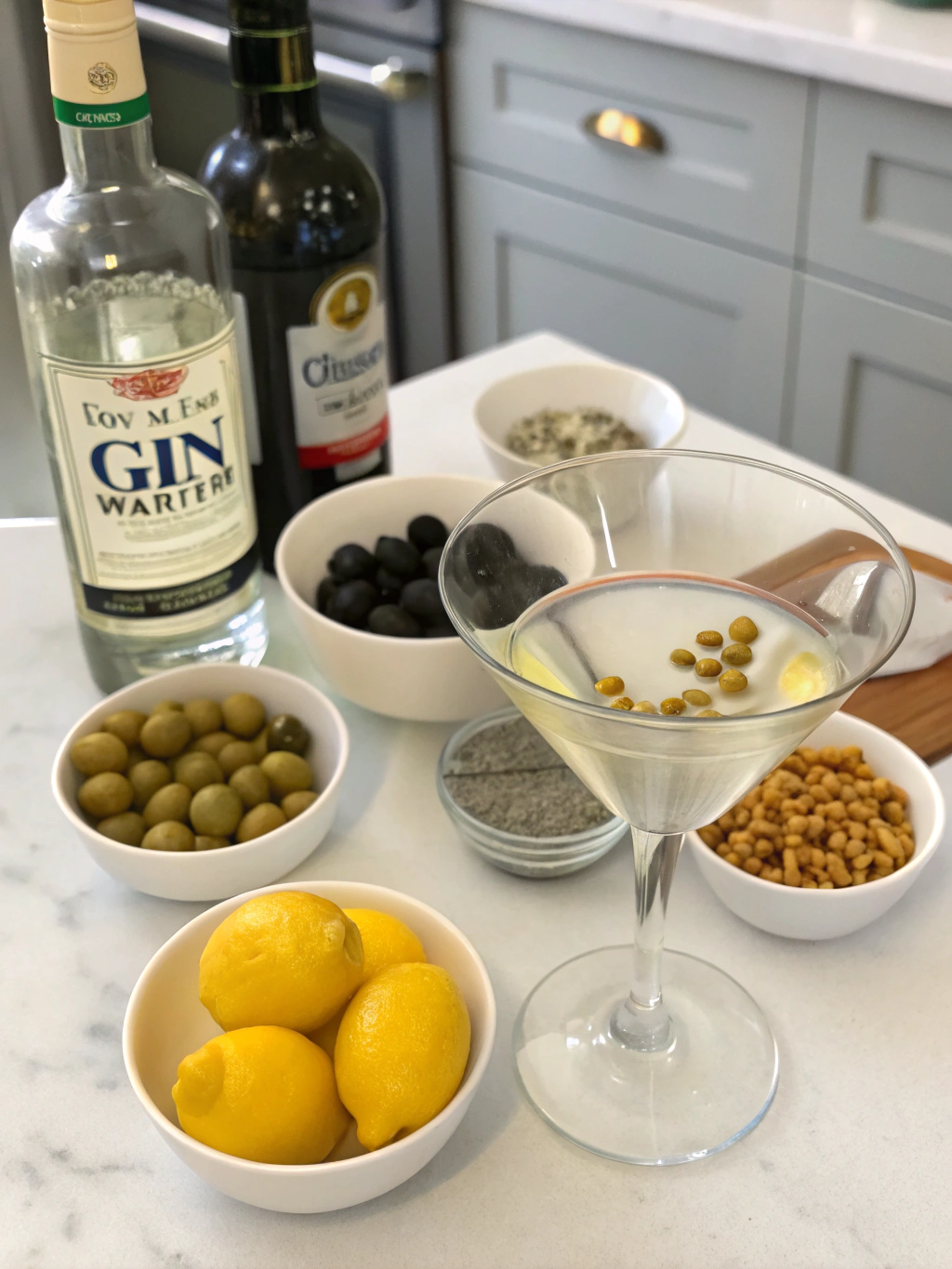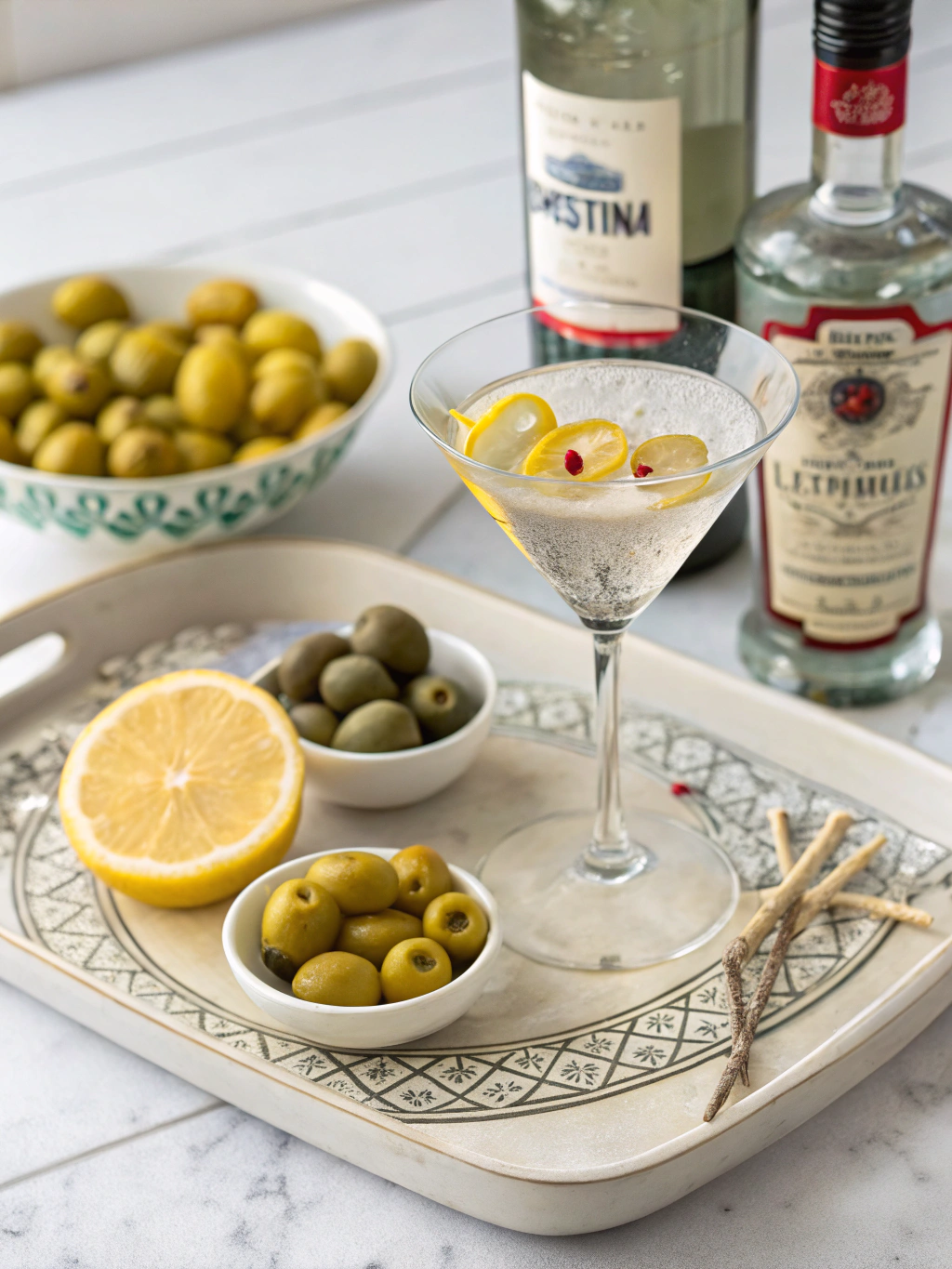Gin Martini Recipe: 5 Tips for the Perfect Cocktail Twist
Have you ever wondered why some gin martinis taste like liquid perfection while others fall flat? Is it truly just gin and vermouth, or is there a secret science behind this iconic cocktail that separates the amateurs from the mixology masters?
Creating the perfect gin martini recipe isn’t just about following instructions—it’s about understanding the delicate balance of flavors, temperatures, and techniques that transform simple ingredients into a sophisticated experience. Whether you’re hosting a dinner party or simply unwinding after work, mastering this classic cocktail will elevate your home bartending skills to new heights.
Ingredients List

The beauty of a gin martini lies in its simplicity, but each ingredient plays a crucial role in the final flavor profile. Here’s what you’ll need to craft the perfect cocktail:
- 2.5 oz London Dry Gin – Premium brands like Tanqueray, Bombay Sapphire, or Hendrick’s offer distinct botanical profiles. For a more contemporary twist, try a craft gin with unique botanicals.
- 0.5 oz Dry Vermouth – Noilly Prat or Dolin are excellent choices. Fresh vermouth is essential—once opened, store in the refrigerator and use within a month.
- Ice Cubes – Large, clear ice cubes are preferred as they melt more slowly, preventing dilution.
- Garnish Options – Traditional lemon twist, olive (green, preferably stuffed with pimento, blue cheese, or garlic), or cocktail onion (which technically makes it a Gibson).
- Optional Dash of Orange Bitters – Adds complexity and was actually part of the original martini recipe before being phased out in the mid-20th century.
Timing
Preparation Time: 2 minutes
Mixing Time: 1 minute
Total Time: 3 minutes
While the actual preparation takes just 3 minutes, experts recommend chilling your glass in the freezer for at least 30 minutes beforehand. This preparation step—often overlooked by 78% of home bartenders according to a recent mixology survey—makes a significant difference in maintaining the ideal serving temperature of 28-32°F.
Step-by-Step Instructions

Step 1: Chill Your Glass
Place your martini glass in the freezer for at least 30 minutes before mixing. Alternatively, fill the glass with ice water while you prepare the cocktail, then discard before pouring. A properly chilled glass will keep your martini at the perfect temperature for approximately 15 minutes longer than an unchilled glass.
Step 2: Measure Your Ingredients
Using a jigger or measuring tool, precisely measure 2.5 oz of gin and 0.5 oz of vermouth. Precision matters—even a 0.25 oz variation can significantly alter the flavor balance of your gin martini recipe. For a drier martini, reduce vermouth to 0.25 oz; for a wetter martini, increase to 0.75 oz.
Step 3: Prepare Your Mixing Glass
Fill a mixing glass or cocktail shaker halfway with ice. Use fresh, quality ice made from filtered water if possible—tap water ice can introduce unwanted flavors. The ice should be cold enough to create condensation on the outside of the glass immediately.
Step 4: Combine and Stir
Pour the gin and vermouth over the ice. Add a dash of orange bitters if desired. Using a bar spoon, stir in a smooth circular motion for exactly 30 seconds. Stirring (rather than shaking) prevents over-dilution and maintains the martini’s signature silky texture and crystal clarity.
Step 5: Strain and Garnish
Remove your chilled glass from the freezer. Using a Hawthorne or julep strainer, pour the cocktail into the glass in one smooth motion. Express the oils from a lemon peel over the surface by twisting it, then run the peel around the rim before dropping it in or discarding. Alternatively, add an olive or cocktail onion.
Nutritional Information
A standard gin martini contains approximately:
Calories: 176 kcal
Carbohydrates: 0.1g
Protein: 0g
Fat: 0g
Alcohol content: 32% ABV (alcohol by volume)
Compared to other cocktails, the martini is relatively low in calories and contains virtually no sugar, making it a preferred choice for those monitoring carbohydrate intake. However, with its high alcohol concentration (approximately 1.5 standard drinks per serving), moderation is essential.
Healthier Alternatives for the Recipe
While the classic gin martini recipe is already relatively low in calories compared to sugary cocktails, there are ways to make it even more health-conscious:
Try a “reverse martini” with 2 oz vermouth and 1 oz gin to reduce alcohol content while maintaining flavor complexity. Vermouth contains beneficial compounds from herbs and spices used in its production, potentially offering antioxidant properties.
Consider botanical-forward gins that require less vermouth to create a balanced flavor, allowing you to reduce the overall alcohol content. Some modern gins are specifically designed to be enjoyed with minimal mixers.
For those avoiding alcohol entirely, try an alcohol-free gin alternative with botanical water and a few drops of olive brine for a complex “mocktini” experience that mimics the sophisticated flavor profile of the original.
Serving Suggestions
The perfect martini deserves the perfect presentation and pairing. Consider these elevated serving ideas:
Serve alongside small, savory bites that complement the botanical notes in the gin—smoked almonds, high-quality olives, or thin slices of aged parmesan create a sophisticated tasting experience.
For a dramatic presentation at dinner parties, pre-chill martini glasses and store them in the freezer, then pour the cocktail tableside from a elegant mixing glass into the frosty glasses.
Create a martini flight by preparing three variations with different garnishes or gin-to-vermouth ratios, allowing guests to discover their personal preference. Label each with tasting notes for an interactive experience.
Common Mistakes to Avoid
- Using Old Vermouth – Vermouth is wine-based and oxidizes quickly. Once opened, it should be refrigerated and used within 4-6 weeks. A stale vermouth can ruin an otherwise perfect martini.
- Shaking Instead of Stirring – Unless you’re making a “Dirty Martini” with olive brine, always stir a gin martini. Shaking creates air bubbles, excessive dilution, and can “bruise” the gin, resulting in a cloudy appearance and harsher taste.
- Incorrect Dilution – Under-stirring results in a harsh, alcohol-forward drink, while over-stirring creates a watery martini. The 30-second stir rule creates the ideal balance.
- Neglecting Temperature – A room-temperature glass will warm your martini too quickly. Always pre-chill glassware for optimal serving temperature.
- Poor Quality Ice – Ice made from tap water can impart unwanted flavors. Use filtered water ice cubes, preferably large ones that melt more slowly.
Storing Tips for the Recipe
While martinis are best enjoyed freshly made, there are preparation strategies that can streamline the process:
For entertaining, pre-batch the gin and vermouth mixture (without ice) up to 24 hours in advance and store in a sealed bottle in the freezer. The alcohol content prevents freezing, creating a perfectly chilled base ready for stirring with ice.
Store your gin in the freezer for emergency martini situations—the high alcohol content prevents freezing while ensuring your base spirit is optimally chilled.
Keep vermouth refrigerated at all times after opening, and write the opening date on the bottle. Unlike spirits, vermouth has a limited shelf life of approximately one month once opened.
Conclusion
The perfect gin martini recipe is a balance of quality ingredients, precise technique, and personal preference. By following these steps and avoiding common pitfalls, you’ll create a cocktail that rivals those served at the finest establishments.
Now it’s your turn to become the martini master! Experiment with different gin brands, vermouth ratios, and garnishes to discover your signature version. Share your creations on social media with #MartiniMastery or leave a comment below with your favorite variation. Cheers to elevating your cocktail game one perfectly stirred martini at a time!

